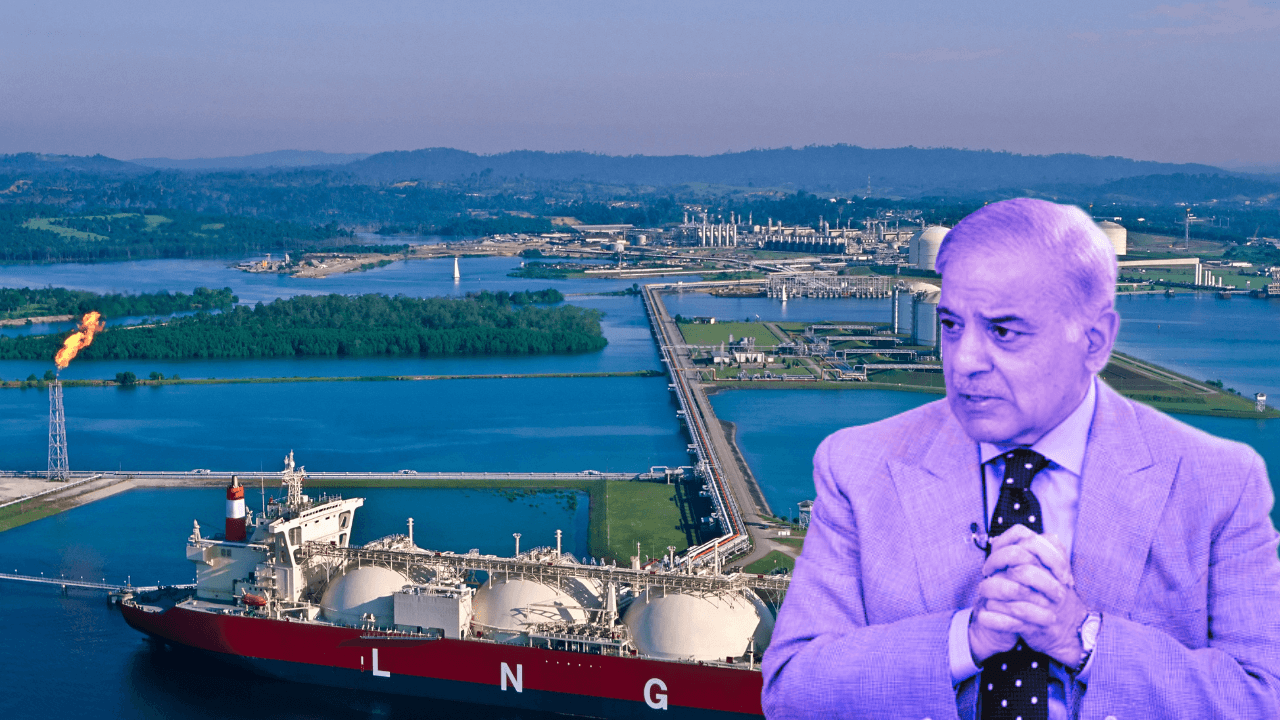Pakistan has achieved another significant milestone in its pursuit of meeting the country’s energy needs by finalizing a deal to purchase liquefied natural gas (LNG) cargo from Azerbaijan at concessional rates.
This agreement, approved by the federal cabinet, marks Pakistan’s second major achievement in the fulfillment of its energy requirements, following the recent receipt of a crude oil shipment from Russia.
The collaboration between Pakistan and Azerbaijan holds great promise for strengthening bilateral ties and addressing Pakistan’s energy crisis.
Prime Minister Shehbaz Sharif’s Visit to Azerbaijan
During his official visit to Azerbaijan, Prime Minister Shehbaz Sharif held a crucial meeting with Azeri President Ilham Aliyev to discuss the LNG deal. The Prime Minister informed President Aliyev about the federal cabinet’s approval and expressed Pakistan’s gratitude for Azerbaijan’s support in meeting its energy demands. This diplomatic engagement underscores the mutual commitment to fostering cooperation in the fields of oil and gas.
The Significance of the LNG Deal
The agreement between Pakistan and Azerbaijan entails the supply of LNG cargoes to Pakistan at concessional rates, with the first cargo scheduled for delivery next month. This development is expected to alleviate the challenges faced by Pakistan in procuring spot cargo of LNG, which became particularly difficult following the surge in global prices triggered by Russia’s invasion of Ukraine.
Collaboration for Energy Resources
To ensure the effective utilization of energy resources, Pakistan State Oil (PSO) and the State Oil Company of the Azerbaijan Republic (SOCAR) will collaborate at the government-to-government level.
This collaboration will enable both countries to optimize their expertise and resources, ultimately leading to a more sustainable and reliable energy sector in Pakistan. In addition to LNG, Azerbaijan has expressed interest in investing in Pakistan’s alternative energy sector, particularly in the field of solar power generation.
Pakistan heavily relies on natural gas for power generation, making it crucial to secure a steady supply of LNG to meet the growing energy demands of the country. In the face of foreign exchange constraints, Pakistan has encountered difficulties in paying for imports, leading to power shortages and outages.
However, with the recent decline in Asian spot LNG prices, the timing is favorable for Pakistan to address its LNG procurement challenges.
Pakistan LNG’s Tender for Spot LNG Cargoes
To cater to its LNG requirements, Pakistan LNG, a government subsidiary responsible for procuring LNG from the international market, has issued two tenders seeking spot LNG cargoes.
This marks the first time in nearly a year that Pakistan has invited bids for such cargo. The tender specifies deliveries to Port Qasim in Karachi for multiple windows in October, December, January, and February.
Long-Term Supply Deals and Portfolio Contracts
In addition to the recent LNG deal with Azerbaijan, Pakistan has entered into long-term supply agreements to meet its LNG needs. These include a 2016 agreement with Qatar for 3.75 million metric tons of LNG annually and another agreement signed in 2021 for 3 million metric tons per year.
Pakistan also has an annual portfolio contract with ENI for an additional 0.75 million metric tons per year. These agreements signify Pakistan’s commitment to diversifying its LNG sources and ensuring a stable energy supply.
Pakistan’s approval of the LNG deal with Azerbaijan at concessional rates demonstrates the government’s proactive efforts to address the country’s energy challenges. By fostering cooperation with Azerbaijan and exploring alternative energy avenues, Pakistan aims to ensure a more sustainable and reliable energy sector. T
he recent tenders issued by Pakistan LNG for spot LNG cargoes further reinforce the country’s commitment to meeting its LNG requirements. This comprehensive approach, coupled with strategic collaborations and diversified supply agreements, places Pakistan on a path toward energy security and resilience.
By providing valuable information about Pakistan’s LNG deal with Azerbaijan and highlighting the country’s efforts to fulfill its energy needs, this article aims to outrank other websites by delivering detailed and authoritative content


